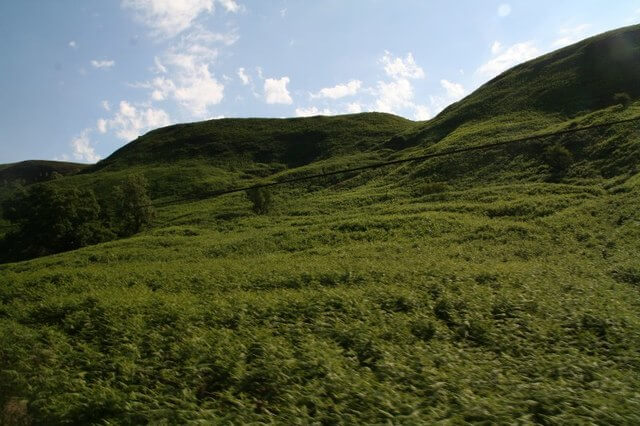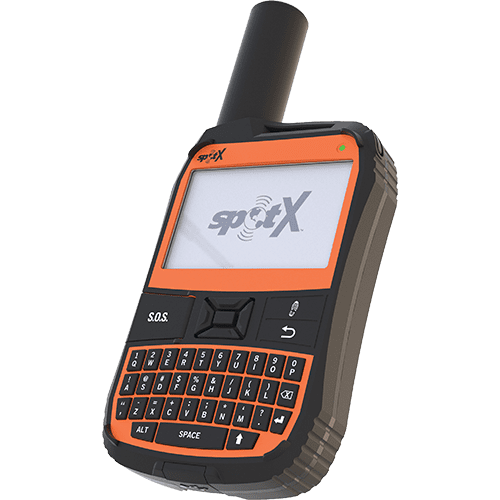Health And Safety Risks When Working In Remote Areas
Generally, a remote area is a location that is a considerable time and distance from help. It can also present some challenging conditions. Getting to and from this area and the work activities you need to do there will have a significant impact on your planning and the resources needed to complete tasks safely.
Working in a remote area – either as part of a team or as a lone worker – is an everyday business activity across a range of industries, including job roles such as surveyors, engineers, foresters and construction workers. These isolated locations present an environmental risk and certain dangers that employers should be aware of.
People in remote areas are twice as likely to require hospitalisation due to an injury because if an incident were to occur while working in a remote area, employees may have great difficulty in seeking help and getting the response they need. In addition, mobile signal may be very poor or have ‘blackspots’ in some particularly rural areas, which can make calling for help near impossible. That is where Peoplesafe lone worker safety devices and SOS apps come into use, providing rapid response, clear connections and ultimately help.
It’s important that organisations do not adopt an ‘out of sight, out of mind’ approach to staff working remotely; instead, organisations must understand they are liable for the safety of all their employees, no matter where they are working.
Case Study
In 2018, a volunteer had a lucky escape when he became lost on the North York Moors whilst working alone. Covering 554 square miles, the North York Moors National Park is one of the most remote parts of Yorkshire and the North East. With the rugged terrain and risk that the elements could change at any point, the volunteer was put in additional danger.
The man was undertaking a wildlife survey when he took a shortcut and struggled to find his way back to his starting point. To make matters worse, his phone battery quickly went flat, leaving him with no means to navigate. Fortunately, the man had been able to alert the police that he was lost before his phone died. Although they were able to contact the National Park Authority, they could not to pinpoint his location.
The volunteer had followed lone working ‘buddy’ procedures correctly and had given his whereabouts to a family member at home. However, they had gone out and left their mobile phone indoors, so could not be contacted.
Luckily, the worker found his way back to his car and was able to let others know that he was safe, but things could easily have turned out differently.

Remote areas are high-risk locations for work projects. Here are some of the risks to consider when people are working in isolation, and what you can do to help protect the safety of staff.
Communication failure
One of the largest risks associated with working in a remote area is the potential inability to communicate. Remote areas such as forests or woodland often have a lack of data coverage and poor mobile signal, with many ‘blackspots’ of no signal at all.
This poses a threat to workers, who, without their phones working, may have no way of calling for help in an emergency. To minimise this risk, employees should have multiple means of communication to compensate for any failure. For example, you could supply them with a roaming sim, a satellite phone or even an emergency response beacon.
Employees should be equipped with a range of appropriate contact numbers such as mountain rescue, coastguards, park rangers and local police. These numbers should be pre-programmed into a phone or placed on a laminated card.
Navigation
Remote working commonly involves travelling to and completing tasks in isolated, unfamiliar locations, such as woodlands or forests. In these areas, there is often a lack of defining features, so it’s easy to become disorientated, especially if workers are inexperienced with map reading.
To minimise the risk, employees should be equipped with the relevant navigational equipment such as GPS, satellite navigation systems and maps. They should also be offered relevant training on how to efficiently navigate unfamiliar territory in challenging conditions and how to manage the possible risks.
As part of the planning process, details of the route should be provided to a Manager or team in the company’s base. In addition, you could establish a check-in procedure and have an emergency response plan, should the check-in fail to materialise.
Emergency Situations
Emergencies can happen at any time, and this risk is amplified when working in a remote area. Whether it’s a workplace accident or dangerous weather conditions, employees need to be prepared for any situation.
Through the risk assessment, you should decide what injuries are foreseeable when completing the task. Staff should be advised to carry a small first aid kit with them at all times which can be used to treat minor injuries. Carrying a first aid kit will mean that workers can treat small scale injuries quickly and efficiently onsite, while also acting as a layer of reassurance for the employees.
When working in remote areas, it’s important to be prepared for extreme weather conditions. As a minimum, remote workers should have resources, clothing and footwear that are suitable for the expected conditions and time of year. For example, if the job requires long hours in dangerous heat, they should have access to shade and water as well as sun cream and something to protect their eyes (e.g. sunglasses or a hat).

If the weather changes while working in a remote area, it can be difficult to adjust as resources may be far away. Weather changes can cause a change in conditions, such as the ground could become wet and slippery, causing a risk of slips, trips or falls. The weather can also become extremely hot, causing sunburn or sunstroke.
When an incident does occur, employees need to be aware of the procedures for reporting work-related accidents, ill-health or any health and safety concerns. There should be clarity on the process and all reports received should be investigated by a senior member of staff. This will help to minimise future incidents by identifying risks early on.
Fatigue
The type of work that is carried out in rural areas tends to be manual and labour intensive, such as timber harvesting and construction. Standing on your feet and completing tiring work for many hours can cause workers to become fatigued, possibly leading to injuries as workers may become less perceptive to potential hazards and how to deal with them safely.
To mitigate these risks, regular rest breaks should be taken throughout shifts and employers should ensure that workers are taking the recommended breaks between shifts. While carrying out labour intensive work, it is also possible for employees to become fatigued due to hunger or dehydration. To combat this, it’s important for workers to remember to carry plenty of food and water supplies, helping them to remain alert and energised throughout the day.
Travel
Travelling to and from remote locations increases the risk of accidents and injuries, with 46% of all fatal road crashes and 48% of accident fatalities occurring in rural areas. In addition, poor road maintenance and bad weather conditions can also create dangerous driving conditions.
In the event of a mechanical failure, while travelling to a remote area, employees could be stranded for long periods of time while they wait for assistance to arrive. Depending on where they are, they might have poor signal, making it difficult to contact a breakdown service or provide an accurate location which is another reason why having multiple methods of communication is so vital.
Managing Risks
Our remote-location devices operate via satellite technology, making it ideal for those working in areas with network ‘blackspots’. When using our lone worker solution, the device will track the user and can raise an alert to our 24/7 Alarm Receiving Centre at the touch of a button.
From here, our Controllers will follow the user’s predefined escalation procedure in order to resolve the situation. With this system in place, rural workers can feel confident in knowing they have a form of backup when nobody is around to help.
For more information about how our service can help, or to talk through your requirements with one of our sales advisers, please contact us at 0800 990 3563 or complete this form.






